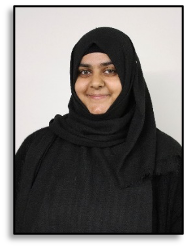 by Noor Syed
by Noor Syed
This post is part of The LION Series from the Freshers’ Magazine Takeover. Each post this week features a snippet from an article in The LION Magazine 2020/21 Issue 1.
The LION magazine is written by third-year King’s students, all of whom have recently completed their BA English degrees.
The magazine helps first-year students in the English Department transition into university life.
This article is by Noor, a soon-to-be graduate from King’s College London with a BA in English Literature who is interested in pursuing a career in the finance and professional services sector.
Dear First Year,
Congratulations on getting a place to study English at King’s College London! This is, no doubt, an amazing achievement in light of how hard you have worked to get here. Whilst this is a completely new experience for you, I am happy that you feel ready to throw yourself into this exciting journey. King’s College London is a completely new environment, regardless of whether you have previously been to university or not. Along with the excitement of starting a course you love and are passionate about, I know that there is also the added pressure to not only keep up with the academic workload, but to also fit in and make new friends.
As a third year who has just crossed the finish line of my degree, there are a few pieces of advice I want to share with you, which I hope will help guide and prepare you in some way for what is to come. These pieces of advices are not exhaustive but are those which I wish someone would have shared with me or at least brought to my attention when entering first year to reassure me that things would be okay.
‘University ≠ Joining Any and Every Society Available’
As tempting as all these societies may look and sound…NO! Joining every society should not be the approach – no matter how many discounts or other incentives they offer you! Only join if it really matters to you, in the sense that it will help you grow as a person.
When entering into my first year, I held the mind-set that it was imperative that I engaged with the experiences available to me at university as much as possible. However, the problem with this was that I had no idea where to start. There is a vast and often overwhelming number of opportunities and initiatives to participate in and get involved with from the get-go (@ the un-officially official inauguration ceremony that is the Fresher’s Fair). Something I was beginning to realise when I entered into my second year was that I was only able to effectively utilise the opportunities available to me after I gave myself the space to adjust into the university environment itself. I ended up proving this to myself when I entered into third year, when I was finally able to become effectively involved in several different societies and committees. In giving myself the chance to adjust to university life at my own pace I was at last able to make the most out of my university experience.
The pre-conceived assumption about university has always been that it is ‘the best years of your life’, includes an underlying pressure to ‘make the most of the university experience’. And this ‘maximisation of your time at university’ could be understood in multiple different ways. This could mean maximise your time socially: making the lifelong friendships you often hear everyone else speak about when discussing their own experiences, or participating in new, different kinds of social events than those you are used to due to the freedom university gives you. This could also mean making the most of your time professionally: by using the King’s careers service, networking, or attending industry-specific insight events considered advantageous to your career prospects.
The main point I want to drive in here is ‘don’t bite off more than you can chew’. If you feel you cannot manage all your responsibilities with societies alongside your academic projects and professional endeavours, prioritise what is more important. More so, avoid committing to everything because in the end, it is always quality over quantity.
Blog posts on King’s English represent the views of the individual authors and neither those of the English Department, the LION Magazine and its editor, nor of King’s College London.
You may also like to read other articles from the LION series:

